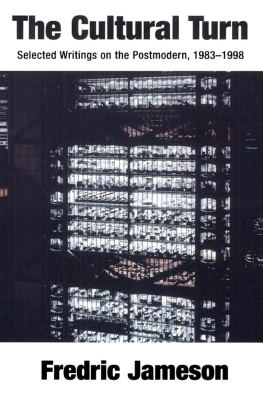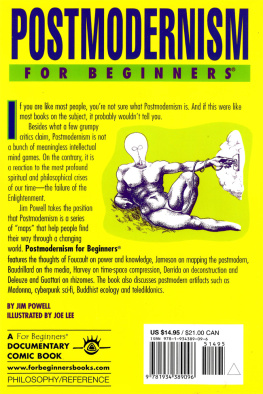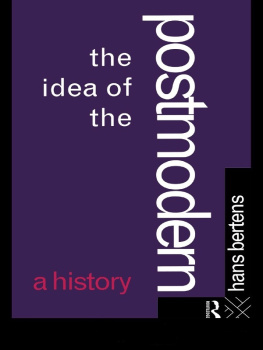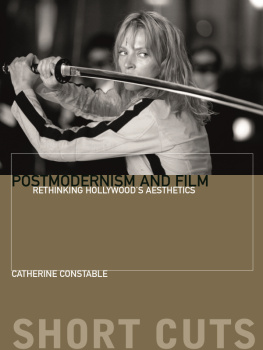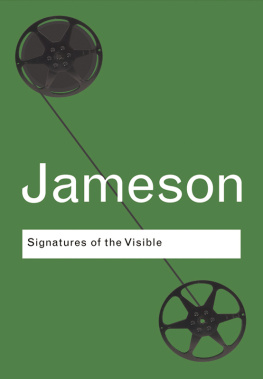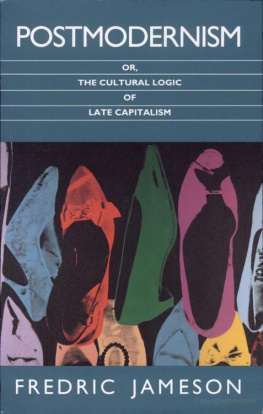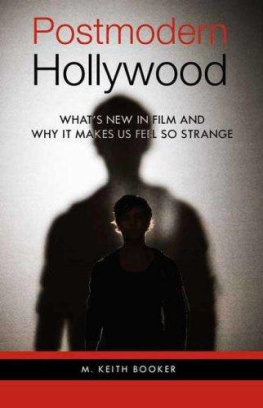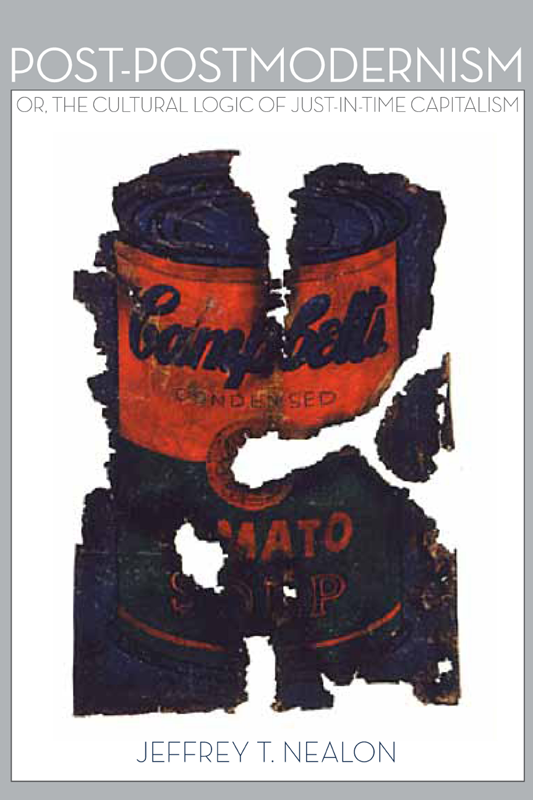POST-POSTMODERNISM

or, The Cultural Logic of Just-in-Time Capitalism
Jeffrey T. Nealon
STANFORD UNIVERSITY PRESS
STANFORD, CALIFORNIA
Stanford University Press
Stanford, California
2012 by the Board of Trustees of the Leland Stanford Junior University. All rights reserved.
No part of this book may be reproduced or transmitted in any form or by any means, electronic or mechanical, including photocopying and recording, or in any information storage or retrieval system without the prior written permission of Stanford University Press.
Printed in the United States of America on acid-free, archival-quality paper
Library of Congress Cataloging-in-Publication Data
Nealon, Jeffrey T. (Jeffrey Thomas), author.
Post-postmodernism, or, The cultural logic of just-in-time capitalism / Jeffrey T. Nealon.
pages cm
Includes bibliographical references and index.
ISBN 978-0-8047-8144-2 (alk. paper)
ISBN 978-0-8047-8145-9 (pbk. : alk. paper)
ISBN 978-0-8047-8321-7 (ebook)
. CultureEconomic aspectsUnited States.. LiteratureHistory and criticismTheory, etc.. Post-postmodernismUnited States. I. Title. II. Title: The cultural logic of just-in-time capitalism.
HM.N 427 2012
'.dc
2011045584
Contents
Acknowledgments
As this book was written over an embarrassingly long time, it has incurred more debts than simple acknowledgments can hope to repay. First and foremost, Rich Doyle has helped me sort out, laugh off, and rethink all of this material in a way that makes me believe again in the productive politics of friendship. Gregg Lambert has likewise been there every step of the way, with just the right cocktail of encouragement and productive skepticism.
Id also like especially to thank Fredric Jameson, who (at a crucial turning point in this writing) graciously came up to State College for a few days to hang out and talk to my graduate seminar. He greatly sharpened my sense of this material, as well as the stakes and directionalities where it might lead, even though I doubt he agrees unequivocally with where Ive taken it.
Undoubtedly, many ideas populating these pages were stolen from the Penn State English Department theory reading groupRobert Caserio, Jonathan Eburne, Brian Lennon, and Janet Lyon. Indeed, the theft goes back to the earlier iteration of that group: Marco Abel, Tony Ceraso, Jeremiah Dyehouse, Elizabeth Mazzolini, John Muckelbauer, Dan Smith, and Evan Watkins. Who says it doesnt pay off to spend long hours at Zenos?
Along the way, I got a lot of help thinking about these topics from Mona Ali, Bruce Andrews, Charles Bernstein, Michael Brub, Marc Bousquet, Pascale-Anne Brault, Claire Colebrook, Frank Donoghue, Grant Farred, Gregg Flaxman, Henry Giroux, Cecil Giscombe, Ann and David Gunkel, Doug Henwood, Shannon Hoff, Caren Irr, Jane Juffer, Amitava Kumar, John Leavey, Rick Lee, Todd May, John McGowan, Jennifer Mensch, Michael Naas, Chris Nealon, Cary Nelson, Johanna Oksala, John Protevi, John Russon, Dennis Schmidt, Alan Schrift, Susan Searls-Giroux, and Cary Wolfe.
One of the great pleasures of the project was getting to know Emily-Jane Cohen from Stanford University Press. Thanks also to Tim Roberts and Cynthia Lindlof for the timely expertise they offered in getting the manuscript into print.
Prototypes of some of these chapters have appeared in the journals Rethinking Marxism, Parallax, Symploke, jac, Postmodern Culture, and Theory & Event; and a version of appeared in Carsten Strathausens edited collection, A Leftist Ontology? Thanks to those publications and their editors for so many helpful suggestions and so much encouragement along the way, as well as for permissions. Special thanks finally to Vitaly Komar for permission to use Post-Art #, Warhol as cover art.
But in the end, this book owes itself to Leisha, Bram, and Dashwho are the inspiration for everything herein despite having had to withstand a decade of dinner conversations on its topics. Like Charles Olsons Maximus, I have had to learn the simplest things / last. Which made for difficulties; but I have finally learned what matters, and I have my family to thank for that. It all started with a dice throw in Vegas, and its just intensified wild positivity from there. They prove every day that theres life in post-postmodernism.
Preface: Why Post-Postmodernism?
Post-postmodernism is an ugly word. And not in the sense that swear words or racial slurs are ugly, or even in the way that rightsizing or outsourcing are ugly words (which is to say, evasive spin-doctored words that try to paper over something foul). Post-postmodernism is, one might say, just plain ugly: its infelicitous, difficult both to read and to say, as well as nonsensically redundant. What can the double prefix post-post possibly mean? Insofar as postmodernism was supposed to signal the end of modernisms fetish of the new, strictly speaking, nothing can come after or post- postmodernism, which ushered in the never-ending end of everything (painting, philosophy, the novel, love, irony, whatever).
But at the same time, there are a number of things to recommend the title Post- Postmodernism over its undoubtedly more felicitous rivalssuch as After Postmodernism, The End(s) of Postmodernism, Postmodernisms Wake, Postmodernism ., Overcoming Postmodernism, Whatever Happened to Postmodernism?, and so on. For my purposes, the least mellifluous part of the word (the stammering post-post) is the thing that most strongly recommends it, insofar as the conception of post-postmodernism that Ill be outlining here is hardly an outright overcoming of postmodernism. Rather, post-postmodernism marks an intensification and mutation within postmodernism (which in its turn was of course a historical mutation and intensification of certain tendencies within modernism).
So the initial post in the word is less a marker of postmodernisms having finally used up its shelf life at the theory store than it is a marker of postmodernisms having mutated, passed beyond a certain tipping point to become something recognizably different in its contours and workings; but in any case, its not something thats absolutely foreign to whatever it was before. (Think of the way that a tropical storm passes a certain threshold and becomes a hurricane, for example: its not a difference in kind as much as it is a difference in intensityor, more precisely, any difference in kind is only locatable through a difference in intensity.) With its stammering inability to begin in any way other than intensifying the thing its supposed to supersede, post-postmodernism is a preferred term for suggesting just such a super-postmodernism, hyper-postmodernism, or maybe a late postmodernism, as opposed to the overcoming or rendering obsolete of postmodernism that would be implied by a phrase like after postmodernism. Related and more pragmatic reasons to hang on to the moniker post-postmodernism might be that it has its own Wikipedia entry and that the term has been popping up everywhere from the New York Times to literary criticism journals, though it has been used in architectural circles for at least fifteen years.
Indeed, postmodernism has seemingly been lingering at deaths door, refusing to pass definitively, for quite some time: John McGowan, author of Postmodernism and Its Critics ( 1991 ), jokingly suggested to me in the early 1990 s that my first book,


